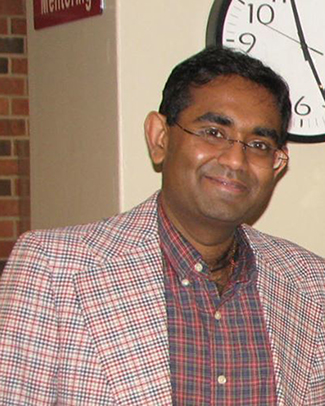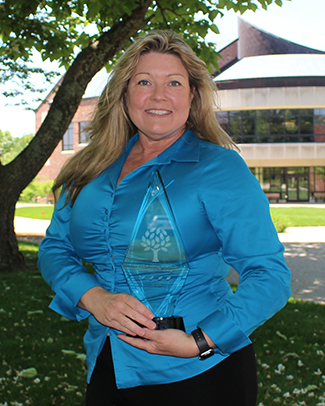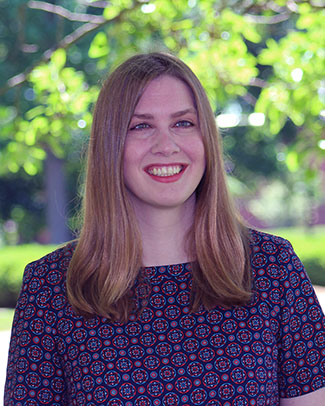By Steven Krolak
(NEW ALBANY, Ind.)–Three IU Southeast faculty members are among five recipients of the second annual Awards for Innovative Learning Activities, presented by the Faculty Academy on Excellence in Teaching (FACET).
They are Sridhar Ramachandran, associate professor of informatics; Lisa Russell, associate professor of strategic management and entrepreneurship; and Rhonda Wrzenski, associate professor of political science.
Per its mission statement, FACET is a dynamic, collaborative community of distinguished IU faculty who are dedicated to and recognized for excellence in teaching and learning. It advocates pedagogical innovation, inspires growth and reflection, cultivates the scholarship of teaching and learning, and fosters personal renewal in the commitment to student learning.
The awards recognize faculty who bring passion, innovation and creativity to the classroom to promote student success across the Indiana University system.
They also serve to share and disseminate best practices in teaching for the benefit of the entire IU community.
Empowering students, supporting retention
Ramachandran’s project, “Google Maps for Student Empowerment,” won the Creative Uses of Online Tools category.

Dr. Sridhar Ramachandran.
In Ramachandran’s class, first-year students develop a Google map/database of alumni that they share with junior and senior students. First-year students gain perspective on the field and the potential it offers for careers in a personally relevant activity that connects them with the program’s juniors and seniors, which in turn helps to create a feeling of community and belonging.
That sense of belonging is important to Ramachandran, who considers student empowerment to be the crux of the decision to stay in school and continue moving forward in the program.
“For me, the most exciting aspect of empowering my students is to observe how they become engaged, self-reliant and intrinsically motivated towards their career goals very early in their academic journey,” Ramachandran said. “When the anxiety about their major and career potential with the degree is laid to rest early in their journey, students can devote their energy towards making successful career network connections and sticking to a four-year graduation path.”
Modeling collaboration for a connected world
Russell’s project, “The Final Countdown: A Design for Helping Students Implement Business Strategies,” won the Collaborative Activities category.

Dr. Lisa Russell.
Originating in an idea of Russell’s colleague Dr. Aycan Kara, assistant professor of strategic management and entrepreneurship, this project leverages students’ thinking skills—comprehension, synthesis, and evaluation—to improve their overall understanding of functional responsibilities and functional implications when a company pursues a new strategy. Groups of three to five students act as Top Management Teams of a company that discuss scenarios, implications, and implementation tasks for functional areas. The exercise allows students to incorporate pre-existing knowledge of business while experiencing the way top managers integrate multiple functional area responsibilities into a cohesive overall strategic decision-making process.
Russell drew attention to the strongly collaborative nature of the course design and implementation with Kara, as well as in the execution of the project by teams of students.
“Students begin to understand the impact of corporate decisions on other functional area managers, often for the first time,” Russell said. “It’s really exciting to see the intellectual light bulbs start to illuminate for students through the conduct of this collaborative activity.”
Discovery through writing
Wrzenski’s project, “Predicting a toss-up Congressional Election in the Classroom,” won the Intensive Writing category.

Dr. Rhonda Wrzenski.
“It feels good when your teaching techniques are validated by your peers,” Wrzenski said.
In Wrzenski’s course, students write numerous smaller assignments and receive near-immediate feedback. From volume comes depth, as students bore more incisively into their electoral topic. From frequency comes confidence and heightened interest, as students access new library and web resources to stay current with election events unfolding in real time. They grapple with all the components that go into a campaign, including social media, campaign finance, district demographics and voter history. The many writing assignments help the students understand these components in a way that enables them to make informed predictions about the outcome of their own local elections as well as state and federal contests.
A culture of innovation
The faculty members acknowledged the personal and professional recognition represented by the award, which validates advances each have made in their pursuit of innovative teaching methods.
They also found satisfaction in the fact that IU Southeast garnered top honors in three of the five award categories.
Ramachandran dedicated his award to the “excellent teaching climate and culture at IU Southeast” that has supported his growth as an instructor over the years.
“Having members of our faculty win three of the five categories really highlights the overall quality of our faculty from across this campus,” Russell said.
Wrzenski echoed this sentiment, noting the immense investment made by all IU Southeast faculty in fostering a student-focused academic culture.
“I believe this gives evidence that our faculty are very dedicated to student success and in making our classroom projects creative, skills-driven and valuable to our students,” Wrzenski said. “As faculty, we hold our own against campuses that may be larger or may have more resources at their disposal.”
Homepage photo: Lisa Russell (l), Sridhar Ramachandran and Rhonda Wrzenski with their Awards for Innovative Learning Activities at the 2018 FACET Conference.


